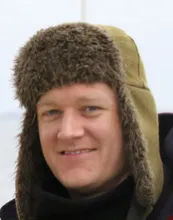
Climate change, pollution and destruction of habitats by humans has profound influence on Earths biota. This manifests in all habitats, aquatic and terrestrial, in rural and urban areas, and influences all taxa.
The research topics of biologists in this field are quite diverse, including
- What influence does warming have on vegetation and ecosystem functions? (ISJ)
- What is the interplay of grazing and warming on terrestrial ecosystems? (ISJ)
- How does vegetation progression happen on glacial moraines? (ÞEÞ)
- How does geothermal areas shape microbes and local fauna? (SB, IA)
- What influence does sound from vessels have on marine mammals? (HSR)
- How does ecotourism affect marine mammals? (HSR)
- How do alien invertebrates colonize Iceland? (AP)
- How does fishing and climate change influence commercial stocks of marine animals? (HSR)


